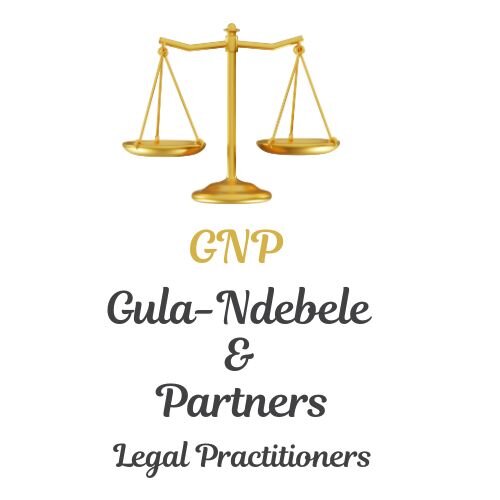Best Contract Lawyers in Bulawayo
Share your needs with us, get contacted by law firms.
Free. Takes 2 min.
List of the best lawyers in Bulawayo, Zimbabwe
About Contract Law in Bulawayo, Zimbabwe
Contract law in Bulawayo, and Zimbabwe as a whole, governs the formation, validity, enforcement, and termination of legally binding agreements between individuals, companies, or other entities. A contract is essentially an agreement that creates obligations enforceable by law. It can involve the sale of goods, provision of services, employment, leases, or other legally recognized arrangements. The law seeks to ensure that all parties to a contract understand their rights and obligations and provides remedies if those rights are violated.
Why You May Need a Lawyer
There are several situations where seeking legal assistance in contract matters may be crucial:
- Drafting or reviewing contracts before signing to ensure your interests are protected.
- Negotiating terms and conditions, especially for large or complicated agreements.
- Interpreting unclear or ambiguous contract provisions.
- Resolving disputes about breach of contract or non-performance.
- Pursuing or defending claims for damages caused by contract violations.
- Handling employment contracts, including matters of unfair dismissal or separation agreements.
- Managing contracts involving international parties or those subject to foreign laws.
- Terminating contracts lawfully and understanding any penalties or consequences.
- Providing advice if a contract is alleged to be void, illegal, or unenforceable.
- Addressing issues related to consumer contracts and warranties.
Local Laws Overview
Contract law in Bulawayo is primarily derived from Zimbabwean statutes, common law, and to some extent, customary practices. The key aspects include:
- Capacity: Parties must have the legal ability to enter into a contract, typically meaning they are of legal age (above 18) and of sound mind.
- Consent: A contract is only valid if all parties freely agree to its terms without coercion, fraud, or undue influence.
- Offer and Acceptance: One party must make a clear offer, and the other must accept it unconditionally.
- Consideration: Something of value must be exchanged, such as money, goods, or services.
- Legality: The purpose of the contract must not be illegal or contrary to Zimbabwean public policy.
- Formality: While many agreements can be made verbally, certain contracts, like those involving land or significant values, may require written documentation to be enforceable.
- Remedies for Breach: If a contract is breached, the wronged party may seek remedies such as damages, specific performance, or cancellation of the contract.
- Limitation Periods: There are time limits within which a party must bring a legal claim relating to a contract, which are set by statute.
Frequently Asked Questions
What makes a contract legally binding in Bulawayo, Zimbabwe?
A contract is legally binding if it involves an offer, unqualified acceptance, consideration, legal capacity, consent, and legality of purpose.
Can I enter into a contract verbally, or must it be in writing?
Many contracts in Zimbabwe can be made verbally and remain enforceable, but contracts related to land, certain high-value transactions, or other specific matters typically require written documentation for validity.
What should I do if the other party breaches our contract?
First, consult the contract for guidance on dispute resolution. If the matter is not settled informally, seek legal advice promptly to explore available remedies such as compensation, specific performance, or cancellation.
Are electronic contracts and signatures valid in Bulawayo?
Electronic contracts and digital signatures are generally recognized, especially for commercial agreements, but it is best to obtain legal guidance in matters involving significant value or risk.
How long do I have to bring a legal action for breach of contract?
The Limitation of Actions Act in Zimbabwe sets out time limits, commonly three years for most contractual disputes, but you should act promptly as exceptions may exist.
What happens if a contract term is unclear or ambiguous?
Unclear terms may be interpreted by a court based on surrounding circumstances and the intent of the parties. Legal advice is essential to assess how an ambiguous term may affect your rights.
Can I cancel a contract after signing it?
Whether you can cancel depends on the contract’s terms and the circumstances. Some contracts allow for cancellation under certain conditions, while others include penalties or require mutual agreement.
Is it necessary to have a witness or get a contract notarized in Bulawayo?
Most contracts do not require a witness or notarization unless specified by law, such as agreements for sale or transfer of land, which often do require witnessing.
How do I enforce a contract if the other party refuses to perform?
You may initiate formal legal proceedings, which typically begin with a letter of demand and can progress to mediation, arbitration, or court action if needed. A lawyer can advise the best approach for your situation.
What can I do if I feel I was pressured into signing a contract?
If you believe you were coerced or unduly influenced, the contract may be voidable. Discuss your situation with a legal professional immediately to determine your options.
Additional Resources
If you need further information or assistance, consider contacting the following resources:
- Law Society of Zimbabwe (LSZ): The regulatory body for legal practitioners in Zimbabwe which can help with finding a qualified lawyer.
- Zimbabwe Legal Resources Foundation (ZLRF): Provides public education materials and assistance on legal matters, including contracts.
- Bulawayo High Court: Handles civil litigation including contract disputes.
- Ministry of Justice, Legal and Parliamentary Affairs: Can provide information on statutes and regulations governing contracts.
- Consumer Council of Zimbabwe: Offers guidance for consumer-related contract disputes.
Next Steps
If you believe you need legal assistance regarding a contract issue in Bulawayo, take these steps:
- Gather all relevant documents including emails, written contracts, receipts, or correspondence.
- Make a timeline of events related to your agreement as this will help a lawyer understand your situation.
- Contact a qualified lawyer who specializes in contract law, ideally someone familiar with Bulawayo’s legal landscape.
- Discuss your concerns openly and ask about possible options or outcomes before proceeding.
- If needed, approach local legal aid clinics or the Law Society of Zimbabwe for referrals to reputable practitioners.
- Be proactive in protecting your rights and act quickly to avoid missing limitation periods or worsening your situation.
The right advice at the right time can prevent costly mistakes and ensure your interests are properly safeguarded under Zimbabwean law. If you have doubts or complex contract concerns, do not hesitate to seek professional legal guidance.
Lawzana helps you find the best lawyers and law firms in Bulawayo through a curated and pre-screened list of qualified legal professionals. Our platform offers rankings and detailed profiles of attorneys and law firms, allowing you to compare based on practice areas, including Contract, experience, and client feedback.
Each profile includes a description of the firm's areas of practice, client reviews, team members and partners, year of establishment, spoken languages, office locations, contact information, social media presence, and any published articles or resources. Most firms on our platform speak English and are experienced in both local and international legal matters.
Get a quote from top-rated law firms in Bulawayo, Zimbabwe — quickly, securely, and without unnecessary hassle.
Disclaimer:
The information provided on this page is for general informational purposes only and does not constitute legal advice. While we strive to ensure the accuracy and relevance of the content, legal information may change over time, and interpretations of the law can vary. You should always consult with a qualified legal professional for advice specific to your situation.
We disclaim all liability for actions taken or not taken based on the content of this page. If you believe any information is incorrect or outdated, please contact us, and we will review and update it where appropriate.












